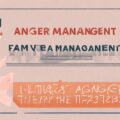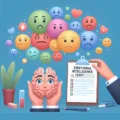Anger is a normal human emotion, but when expressed destructively, it can damage relationships and wellbeing. By cultivating self-awareness and empathy, both kids and adults can learn to respond to anger in healthier ways that prevent harm.
Teaching Children Emotional Intelligence
A child’s emotional world is complex. While anger itself is not bad, how we react when angry can lead to hurtful words or actions. Rather than punishing angry outbursts, parents and teachers can use books to nurture emotional intelligence in children.
Stories can help kids identify their own feelings, understand what triggers them, and develop tools to self-soothe. Respecting a child’s emotions, while also guiding them to express anger constructively, enables healthy socio-emotional development.
Managing Anger with Mindfulness
For adults, anger often stems from perceived threats to our self-image. But taking offense can imprison us in our own negative mind loops. By cultivating present-moment awareness, books on mindfulness can help readers respond consciously rather than reactively.
Through exercises in self-inquiry and radical acceptance, these books teach readers to observe their anger compassionately, without judgment. This builds resilience and allows more space between stimulus and response.
Choosing Peace, Choosing Growth
At its root, destructive anger often represents an unmet need – be it for safety, respect, or love. Books on nonviolent communication can help identify these needs in ourselves and others. Rather than accusing or attacking when angry, readers learn to express their feelings and ask for what they really want.
This fosters goodwill and conflict resolution. More importantly, it allows anger to become an opportunity for understanding – and for the personal growth that occurs when we choose peace.
FAQ
Why do kids get angry?
Kids often get angry when they feel scared, hurt, frustrated, jealous, embarrassed, or insecure. Big emotions can overwhelm their developing brains. They need help labeling feelings and reactive behaviors that underlie their anger.
How can you help a child control anger?
To help kids manage anger, acknowledge their emotions without judgment, set clear rules and consequences, teach calming techniques like breathing/counting, provide outlets like exercise/art, share stories promoting empathy, and model appropriate anger responses.
What are the best anger management books?
Some excellent anger management books include “The Cow in the Parking Lot” by Leonard Scheff and Susan Edmiston on mindful responding, “The Anger Management Workbook” by Les Carter and Frank Minirth on identifying triggers, “The Dance of Anger” by Harriet Lerner on assertive expression, and Marshall Rosenberg’s “Nonviolent Communication” on conflict resolution.
What are some anger management techniques?
Effective anger management techniques include pausing before reacting, acknowledging the anger and what you feel/need rather than attacking others, deep breathing to calm the nervous system, going for a walk/run, journaling to process emotions, and communicating assertively once composure returns.
How can anger management help mental health?
Learning to manage anger constructively reduces stress and conflict. This promotes overall mental wellbeing by building self-awareness and resilience, deepening relationships through vulnerability and empathy, and creating opportunities for personal growth by consciously choosing peace.









